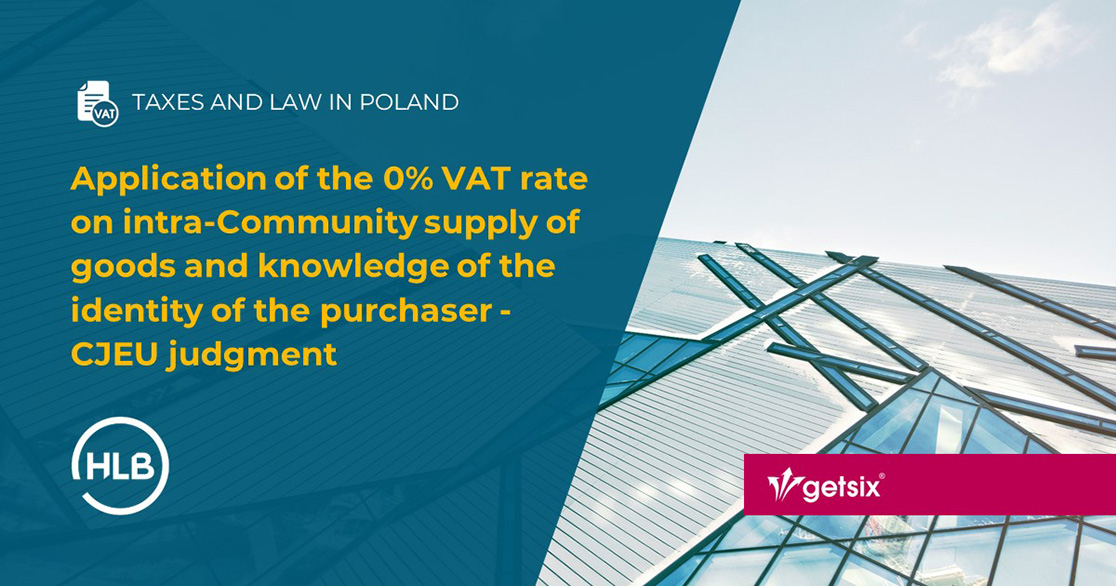Application of the 0% VAT rate on intra-Community supply of goods and purchaser’s identity – CJEU judgment
19 April 2024
19 April 2024

The verdict dated 29th of February 2024, case C-676/22 B2 Energy s.r.o. analyses the issue related to the possibility of applying the VAT exemption when the supplied goods have been shipped to a purchaser other than the one mentioned in the tax documents.
In 2015, the Czech company B2 Energy made a delivery of goods to Poland, considering it to be an intra-Community supply of goods applying the 0% VAT.
After a tax control, the tax authority considered that B2 Energy had not provided sufficient documents to prove that the conditions for the VAT exemption on the intra-Community supply of goods were met. The tax authority did not dispute that the goods had actually been transported to another Member State, but was of the opinion that B2 Energy had not provided evidence that it neither had transferred the right to dispose of the goods as owner to the persons indicated in the tax documents as consignees, nor that the goods had been delivered to a person registered for tax purposes in another Member State.
Consequently, the tax authority concluded that B2 Energy did not meet the necessary conditions to benefit from the 0% VAT rate on intra-community supply of goods, and therefore the amount of VAT determined in the decisions on tax due should be raised.
B2 Energy filed an appeal in cassation arguing that it had provided sufficient evidence to meet the conditions for applying the 0% VAT rate on intra-Community supply of goods. The documents provided, including evidence of the proven receipt of goods by companies other than those assigned in the tax documents, make it possible to identify the real recipients. This in turn makes it possible to establish the identity of the consignees to whom the right to dispose of the goods has been transferred.
The CJEU outlined two situations in which a taxpayer may be denied the right to an exemption from VAT on account of intra-Community supply of goods – tax fraud (which jeopardises the operation of the common VAT system) and a situation in which a breach of the formal requirement to apply the VAT exemption results in an inability to provide convincing proof that the material requirements have been met.
The CJEU ruled that it is not justified to require a taxable person to prove, whenever the recipient of goods is not identified, that this recipient is a VAT taxable person provided that it is without any doubt from the facts that the recipient in question had this status.
The judgment of the Court of Justice of the EU relates to the law that was in force until 31st of December 2019.
If you have any further questions or require additional information, please contact your business relationship person or use the enquiry form on the HLB Poland website.
***
Download the brochures providing general information and outlining the services that are offered by HLB member firms.
Learn moreClick below for more detailed information regarding population, major towns and cities, language, religion and holidays in Poland.
Learn more